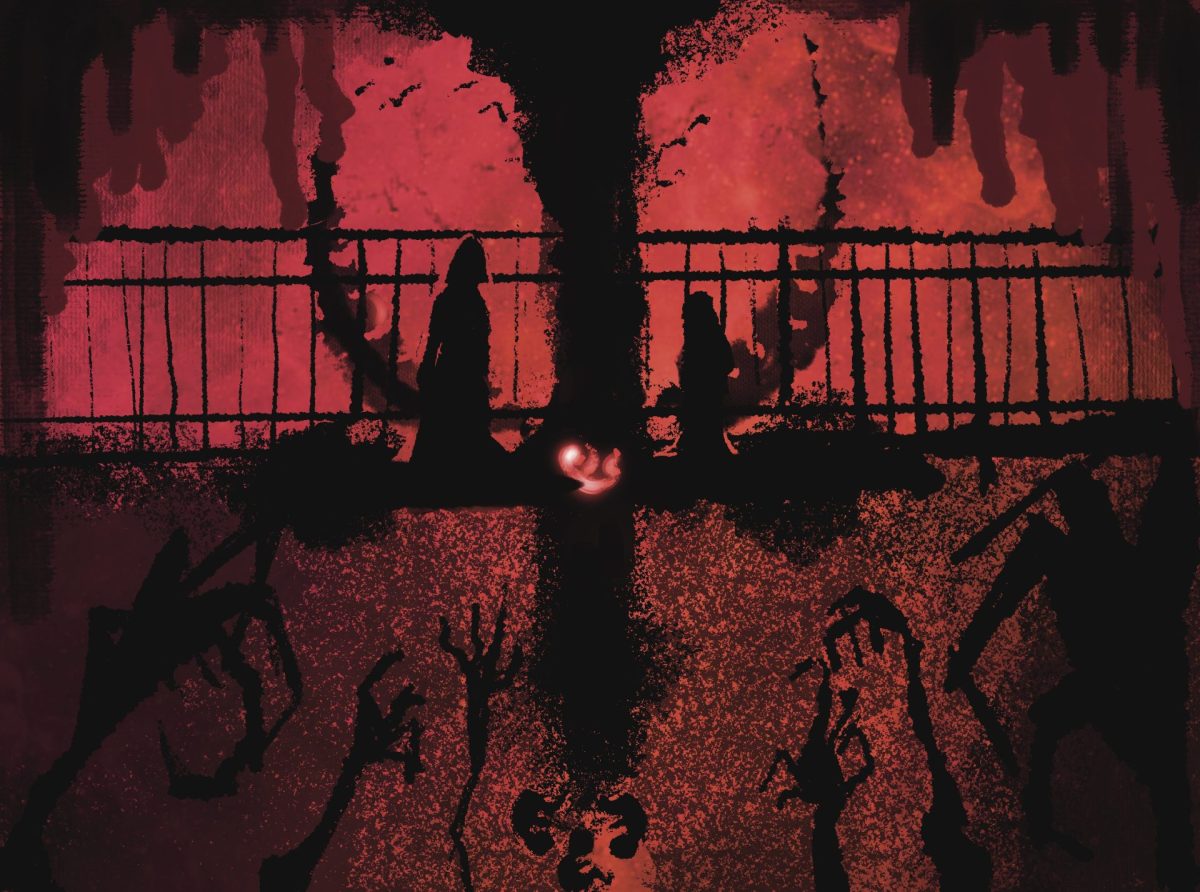“Moonrise Kingdom” fails from the beginning, or at least fails to convince. The film’s expensive cinematography could only take it so far. In the opening montage the camera takes us up and down and around the house of Walt and Laura Bishop, played by Bill Murray and Frances McDormand. Their three young boys are lying on the floor in an upstairs bedroom listening to a narrated orchestra piece on a record player. This early attempt to display the children’s precociousness is not followed through, and neither are the stories of the characters that have the most to say.
Laura Bishop might have some bohemian streak in her but it is never developed. She sneaks away from home on her bike, smoking cigarettes and holding the hand of her lover Captain Sharp (Bruce Willis) but their affair is passionless and boring. Sharp is a “sad and dumb” man, Laura’s daughter Suzy says. Both the Captain and Laura are sad, but we never get a real understanding of their sadness.
To the detriment of the film, the focus is thrust on two young underperforming actors who are not given enough help in the writing to carry the story. Sam Shakusky (Jared Gilman) is the plucky protagonist. Suzy (Kara Hayward) is the Bishop’s eldest child and only daughter. The two 12-year olds have been pen pals for a year and decide to runaway together.
Child actors are supposed to have some redeeming qualities, even if they play unlikeable characters; however, Sam and Suzy have none. We see no emotion from him, no nuance, no sweetness or understanding, only his determined awkwardness; and Suzy’s dour face belies nothing. We never get to the bottom of these characters because there is no bottom – they are prepubescent.
Director Wes Anderson had the roster for a frighteningly human film, but it came nowhere close to the standard these actors should enjoy. Murray, McDermott, Willis, Edward Norton, Tilda Swinton and Harvey Keitel – all underutilized; and what a demeaning role for Keitel, one of Hollywood’s true tough guys. He was laughably immobile, perhaps incontinent by the end of the film. There is comic potential with all of these characters, especially between Captain Sharp and Walt, but it is never realized. The failed attempts at humor are saved for the children who are incapable of delivering.
What’s worse is that Anderson insults anyone expecting to see a pure, honest film by using special effects to hide the dullness of the story and his characters. How to reconcile the vintage cinematography of the first two-thirds of the film with the crude use of CGI in the final chapters? The inept Scoutmaster Randy Ward (Edward Norton) leaps over a canal twice, once with Harvey Keitel on his back; Sam gets struck square in the head with lightning; a Tim Burton-like effigy as Sam, Suzy, and Captain Sharp hang off the edge of a church steeple after getting struck by lightning (twice for Sam in only a few hours). The film was boring, despite these disingenuous attempts at artifice.
The setting of the story reminded me of Annie Proulx’s novel, “The Shipping News.” Proulx brings to life an unforgettable batch of isolated island characters in Newfoundland. Anderson could have taken this path with his fictional island. He could have told a grownup story, full of sadness and human glory. Instead, he chose the much less interesting, and more constraining story about children – two unlikeable children.
?




![DePaul sophomore Greta Atilano helps a young Pretty Cool Ice Cream customer pick out an ice cream flavor on Friday, April 19, 2024. Its the perfect job for a college student,” Atilano said. “I started working here my freshman year. I always try to work for small businesses [and] putting back into the community. Of course, interacting with kids is a lot of fun too.](https://depauliaonline.com/wp-content/uploads/2024/04/ONLINE_1-IceCream-1200x800.jpg)


